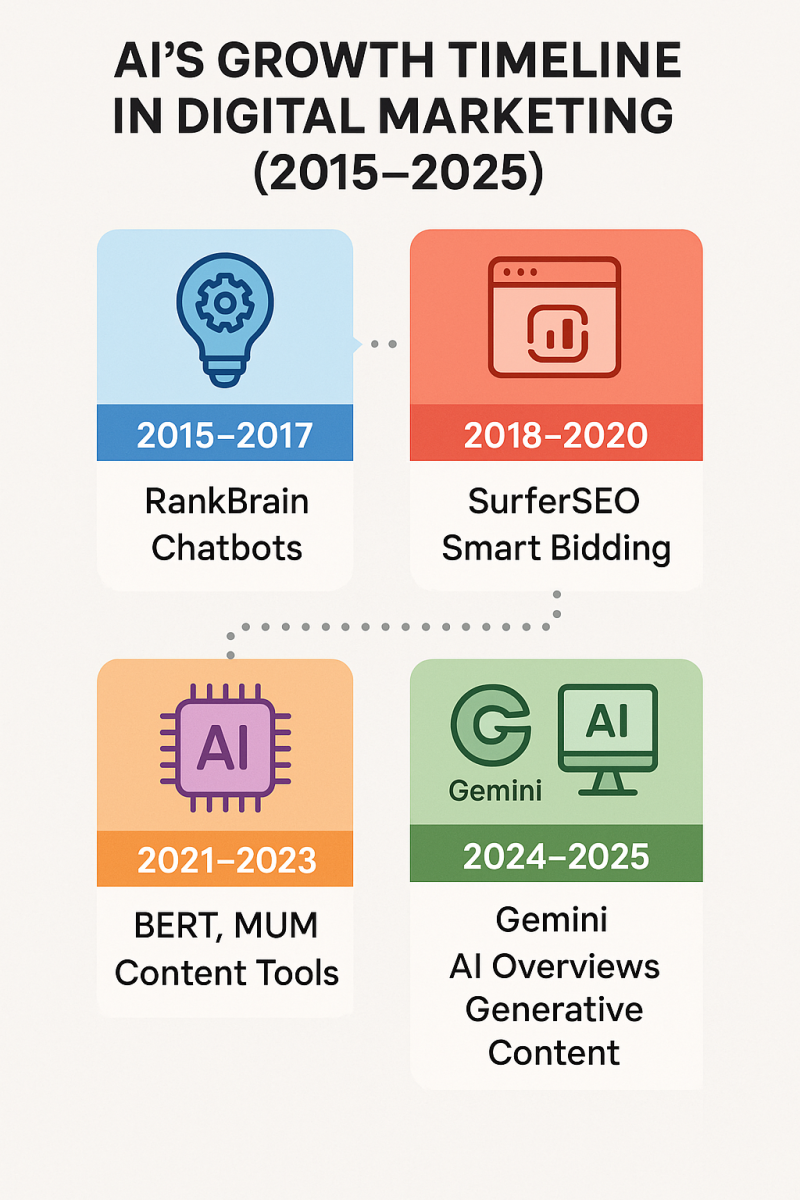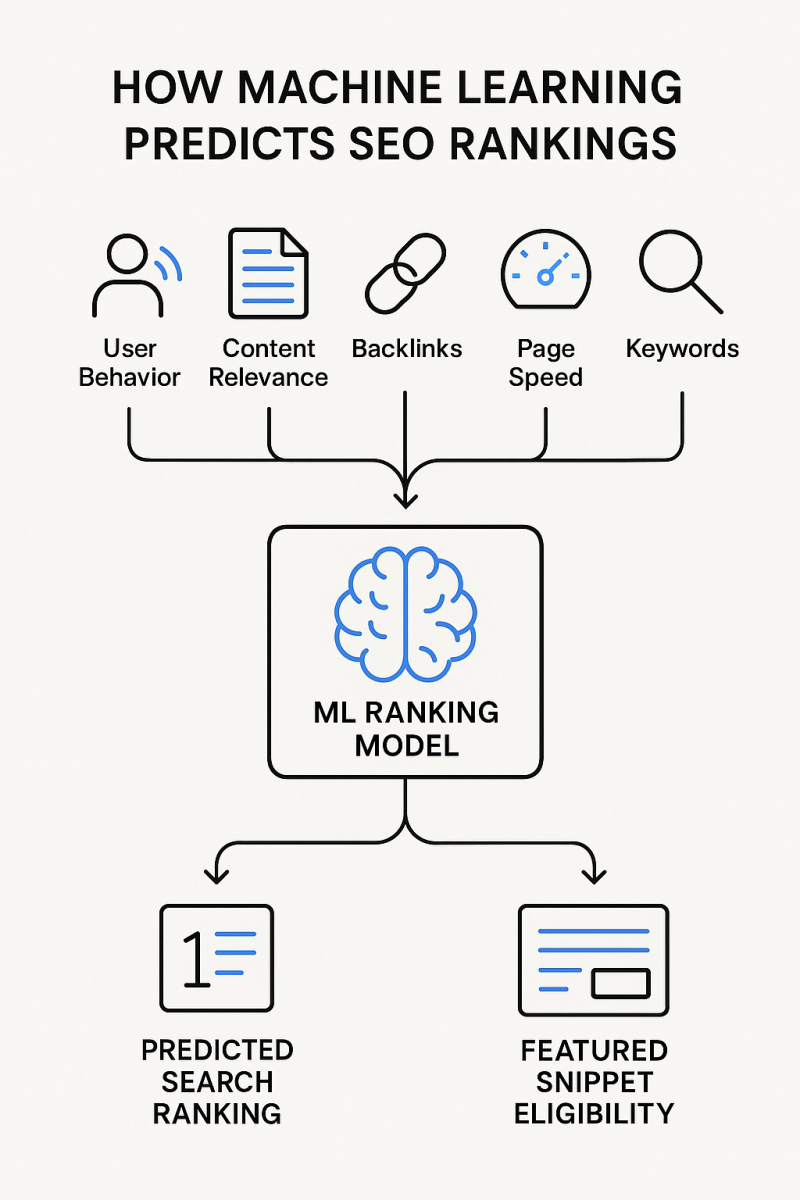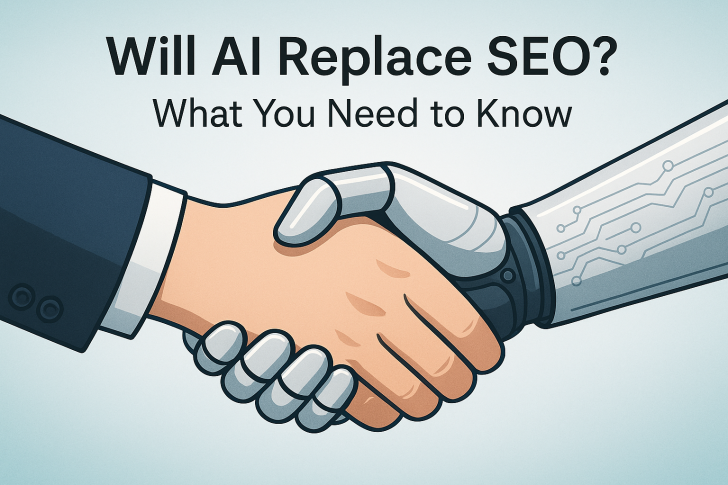SEO isn’t dying, but it sure is evolving. You've probably heard the buzz:
Will AI replace SEO?
With AI-generated content flooding the internet, studies show that AI overviews now appear in nearly 15 percent of search queries, climbing to 60 percent for detailed questions and AI SEO tools promising quick results, it’s easy to wonder if SEO professionals are about to be replaced by robots
Relax.
AI isn't here to steal your job (not yet, anyway).
Instead, it's transforming the SEO landscape, creating opportunities if you’re ready to adapt. Whether it’s AI-driven SEO strategies, Google AI updates, or automated keyword research, understanding how AI affects SEO is essential for staying competitive. Here’s what the future of SEO actually looks like and how you can ride the wave instead of drowning in it.

How AI is Changing SEO in 2025
Google doesn't sleep.
If you've been ignoring Google's AI updates, your site rankings might already be feeling the pinch. The latest release, Gemini, and other future updates, have made AI-driven SEO strategies a necessity, not just an option.
Think of Google like your overenthusiastic neighbor, always tweaking, always "improving." These updates reward websites optimized by powerful AI SEO tools and penalize outdated, keyword-stuffed content. SEO automation is now smarter, using machine learning to pinpoint what users really want.
If you're still guessing with your content strategy, you're losing the game. AI keyword research tools now provide clear insights into exactly what your audience searches for, helping you craft content that ranks and converts. Stay alert, or risk watching your competitors sprint ahead.
For a deep dive into how Gemini impacts search rankings and what actions savvy marketers take, see Search Engine Land’s guide on how to use Google Gemini for better SEO.
AI SEO Tools Transforming the Industry
Remember when keyword research meant staring at spreadsheets until your eyes glazed over? Thankfully, those dark days are behind us.
Today’s AI SEO tools like SurferSEO, MarketMuse, and Frase have taken content optimization from tedious guesswork to precise science. They analyze search trends faster than your morning coffee brews, pinpointing exactly which topics your audience cares about.
For example, AI keyword research tools suggest phrases you’d never think of on your own but your customers regularly use. MarketMuse can even help you identify content gaps where your competition falls short.
Instead of wrestling with complicated SEO jargon, these tools simplify your work, letting you focus on creating content that genuinely helps readers.
AI-Generated Content: Benefits and Risks
Creating content consistently can feel like a never-ending treadmill. You need to keep publishing fresh articles, but writer’s block and tight deadlines can slow you down. That’s where AI-generated content comes in, a shortcut to productivity, right?
AI-generated content offers clear benefits:
- Quickly generates optimized content using SEO automation.
- Saves significant time, money, and sanity.
- Speeds up content creation to meet tight publishing schedules.
AI writing tools like Jasper or ChatGPT can spit out articles faster than your Wi-Fi loads a TikTok video. They promise to hit all the keywords you need without breaking a sweat.
But here’s the kicker: AI‑generated content isn’t flawless.
Sometimes it writes like a robot trying too hard to sound human. Google’s revised spam policy now targets low‑quality, scaled AI content, such content has been confirmed to drop out of search results by as much as 40 percent.
If your content lacks originality or real value, your rankings could take a serious hit.
The solution?
- Use AI for first drafts or outlining articles.
- Always add human insights and examples for originality.
- Balance the efficiency of AI with the creativity that only humans can provide.
Otherwise, you risk blending in with every other lazy competitor online.
Machine Learning SEO: The Next Big Thing?
SEO used to be straightforward.
You picked keywords, optimized content, and hoped for the best. But now, traditional methods feel like playing darts in the dark. You guess, you throw, you miss.
Machine learning SEO changes the game completely. Instead of guessing, it uses data from millions of searches to predict exactly how pages will rank. These AI ranking factors go beyond keywords, looking at user behavior, search intent, and content relevance.
SEO automation powered by machine learning means your website adapts instantly. Your site can identify new ranking opportunities, adjust keywords automatically, and even spot competitors' weaknesses before they do.
So, will AI replace SEO entirely?
Not exactly.
But ignoring machine learning is like showing up to a drone race with a paper airplane. To stay ahead in the future of SEO, use machine learning tools and techniques, your website rankings will thank you.

Human Role in the AI-Driven SEO Landscape
Worried that the future of SEO is robots stealing your job? Take a deep breath.
AI is smart, but it can’t replicate genuine creativity or strategic thinking.
Sure, SEO and artificial intelligence make a powerful duo. AI is great for crunching data and automating repetitive tasks. But when it comes to creative content, unique brand voice, and strategic planning, humans still reign supreme.
After all, an AI can optimize your content, but it won't craft a brand message your audience genuinely connects with.
Studies show that human-created content still outperforms AI in both engagement and SEO impact. In 2025, the best strategies use a hybrid model where AI handles the grunt work while humans guide the strategy and tone.
Think of AI like your assistant, fantastic at handling mundane chores. But when you need innovative ideas and meaningful engagement, human insight is unbeatable.
If you lack in-house expertise, partnering with a trusted white-label SEO company can help balance advanced AI strategies with creative, human-driven insights.
FAQ:
1. Will AI completely replace SEO professionals?
Nope. AI isn't here to take your job entirely. Think of it as your new best buddy who does the tedious stuff. SEO and artificial intelligence work best together, combining AI-driven SEO strategies with human creativity and insight.
2. How does AI affect Google's search rankings?
Google AI updates have reshaped how content ranks. Google's latest algorithms now prioritize user intent and quality over basic keywords. AI ranking factors measure content relevance, authenticity, and user satisfaction. Ignore them, and you'll be invisible online.
3. Are AI writing tools reliable for high-quality content?
AI writing tools like ChatGPT are helpful, but they're not perfect. They're great at generating first drafts, but they often struggle with authenticity and unique style. Always fact-check, edit for clarity, and add your personality before publishing.
4. What SEO skills remain essential despite AI?
AI might automate some SEO tasks, but strategic thinking, creativity, brand-building, and emotional intelligence remain human strengths. Mastering these will keep you ahead in the future of SEO, ensuring you stay valuable no matter how advanced AI becomes.
Human SEO vs. AI SEO: Quick Comparison
| Aspect | Human SEO | AI SEO |
| Content Creation | Creative, nuanced | Fast, scalable |
| Keyword Analysis | Insight-driven | Data-driven, automated |
| Strategy & Planning | Strategic, brand-oriented | Predictive, analytics-based |
| Understanding User Intent | Empathetic, intuitive | Statistical, behavior-tracking |
Humans excel at crafting unique, brand-focused strategies and emotionally resonant content. AI shines by rapidly analyzing data, automating SEO tasks, and spotting trends faster than humans can blink.
For best results, blend human creativity with AI efficiency to future-proof your SEO strategy.
 Editorial staff
Editorial staff

 Editorial staff
Editorial staff


